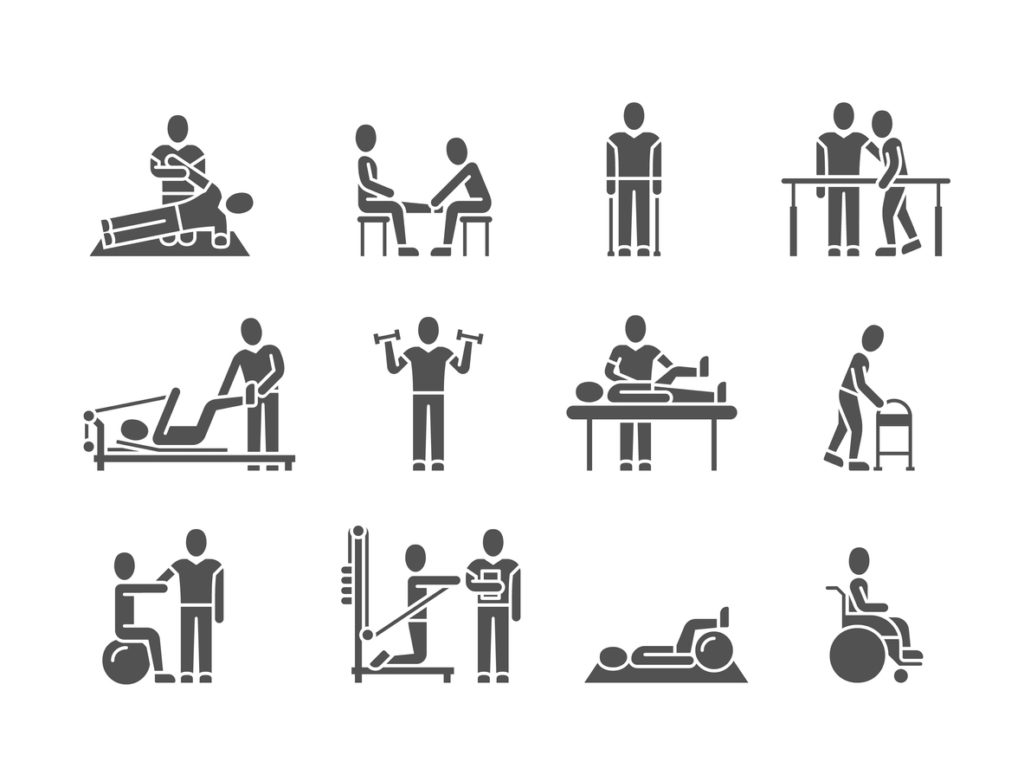Pain in the lower back is one of the commonest things that people experience. Indeed, it’s likely that through the course of one’s life, almost everybody will experience it at some stage.
Hi, I’m Dr Joe.

There are different theories as to why back pain is so common. One of them is that, despite the fact that humans evolved to walk on two feet, we’re not quite fully evolved and that maybe in another 5, 10, 20 thousand years back pain won’t exist because we’ll be better adapted to it. But I don’t know, and we won’t be around to find out.
So, what are the common causes of back pain?
Contrary to common belief, the commonest reasons for back pain are not slipped discs or other structural problems with your back. Far, far, far and away, the commonest reason for people to have a sore back is because of strain on the muscles. After that, we’re looking at strain of the ligaments, and those two things are connected, and then you’ve got all the rest. Now, back pain ranges from very mild – like when you’ve done some gardening and you pull up a little sore, I think people won’t be too surprised by that – obviously through to the very serious; and we start from minor muscle strains and obviously go right the way through to major spinal injuries and fractures of the vertebrae. However, 95% is going to be fairly minor and most of it will resolve itself in a relatively short space of time.
If you do have pain in your back, it can be a good idea to go and see a doctor. That said, if you’ve been out gardening and you’re a little bit sore and you sit down for 10 or 15 minutes and it goes away, then obviously you don’t need to go running in to the doctor. There are a few warning-type signals that make it more important to see your doctor and those include: pain that persists for perhaps more than a day or two; pain that’s increasing, obviously, and maybe that doesn’t respond to something simple like some paracetamol or ibuprofen; and also if you’re getting any pain referred from the back, if you’re getting any pain going into the buttock or down the leg, or any pins and needles in those areas, then that’s certainly important to see your doctor.
Treatment-wise for back pain, it does depend a little bit on cause, but because the commonest reasons are what we call soft tissue (as we said before, muscle and ligament) type strain, there are fairly simple things that you can do. Very basic stuff like a hot pack or heat pack is going to make a lot of difference. It makes you feel better and it helps the circulation to the back. Rubbing in some anti-inflammatory or liniment type gel can be useful. And some simple massage if you’ve got a friend or partner who can do that for you is good, or you can see a physiotherapist or masseuse or whatever modality that you like.
Simple painkillers like, as we spoke before, paracetamol or ibuprofen are okay. Next step after that can include prescription medication: anti-inflammatory tablets can be used for people who are able to tolerate them, and if back pain persists then there can be a time when it’s worth doing x-rays or scans. Now most of the time, I’m talking 95–98% of the time, there will be nothing that we see on either x-ray or scan. It’s more about ruling out problems rather than finding them. And I should also add that even when we see some disc bulging on a scan, that does not mean that is the cause of your pain. Often people latch onto this and think that because we’ve seen it that must be the cause. What we don’t know is whether that bulge was there 2 years earlier or even 3 weeks earlier when you didn’t have any pain. So sometimes we find things and assume that they’re the cause, but in fact they are just there.
At times we will see on scan that there is a major disc bulge and pressure on the nerve, and that may require some more involved physiotherapy treatment or traction. There are instances when people have problems with what are called the facet joints, which are the little joints in the back. They may benefit from injections. And there are extremely uncommon cases where people may need surgery on the back. But when you think about all the people who have back pain, surgery may be one in so many thousand. It’s not something that needs to be done very frequently, and injections again don’t need to be done very frequently.
Like most things in medicine, if we can prevent problems before they occur, that’s going to be better all around. So what can we do to look after our back? Lifting sensibly and bending our hips and knees when we pick stuff up is really the most important point. Our backs aren’t designed to carry heavy weights, but our thighs and our legs, are. So that is the number one prevention. Doing some regular back exercises is useful and, paradoxically, sometimes when people have had a back injury and they start doing exercises, it actually strengthens the back and reduces their chances of having problems down the track. So being aware of your back in terms of safety and lifting is probably number 1, 2 and 3, and then some exercises might be 4, 5 and 6.
Some people, just the way they’re put together, may be a little bit more susceptible to back problems than others. There are thought to be some genetic tendencies but you can’t do anything about that. That does not take away from the fact that you can do a lot to prevent back pain.
So again, let’s keep it simple. Looking after your back by doing some exercises for your back, being careful with bending and lifting, and following all the standard safety measures are important. They really make a difference. If you do have some minor back pain because of things that you’ve been doing, don’t get too stressed. Do some simple things first. If you have any of the warning signals that we spoke about or your pain is persisting, then certainly go along and see your GP.
All content and media on the HealthEngine Blog is created and published online for informational purposes only. It is not intended to be a substitute for professional medical advice and should not be relied on as health or personal advice. Always seek the guidance of your doctor or other qualified health professional with any questions you may have regarding your health or a medical condition. Never disregard the advice of a medical professional, or delay in seeking it because of something you have read on this Website. If you think you may have a medical emergency, call your doctor, go to the nearest hospital emergency department, or call the emergency services immediately.







